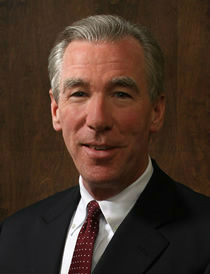
Culture
The American Families Plan is another idea Plato would have liked. It doesn't require turning the care of children over to the government. Instead, it pays people to turn them over.

Garvey
In Plato's "Republic," Socrates discusses a society in which the state arranges marriages among its best citizens and assigns their offspring to nurses chosen for the job, "employing every device to prevent anyone from recognizing her own infant." The state then carefully supervises the children's education so that they form opinions "desirable for them to hold when they are grown up."
We have had our flirtations with Plato's theory. A century ago, Oregon passed an initiative requiring all children to attend public schools. Proponents of the measure (the Ku Klux Klan and other anti-Catholic organizations) argued that it was necessary to preserve a homogeneous American culture. A society of Catholic nuns who ran orphanages and schools sued to enjoin the law, which would have put them out of business.
In Pierce v. Society of Sisters the Supreme Court rejected the idea that the state could monopolize the upbringing of orphans. It held, "The child is not the mere creature of the state; those who nurture him and direct his destiny have the right, coupled with the high duty, to recognize and prepare him for additional obligations."
The idea that children belong to the state is in vogue again. It was before the Supreme Court in Fulton v. Philadelphia in June. And it is the inspiration for the American Families Plan that the Democrats would like to push through the Senate.
The issue in Fulton was the custody of foster children. Pennsylvania, like a lot of states, claims a monopoly over foster care. The state assigns custody of such children to local authorities, who put them in homes or facilities the government deems appropriate. If a private organization wants to help, it needs a contract from the authorities.
If the children really do belong to the state, it can set the terms of the contract. In 2018, Philadelphia told Catholic Social Services that it had to place children with same-sex couples if it wanted to be part of the system.
This wasn't about increasing foster care opportunities. Catholic Social Services was a major source of foster homes for the city. It was about placing children where they will form what Plato called "desirable opinions," and maybe about getting Catholics to think differently about marriage.
The Supreme Court ruled for Catholic Social Services on rather sophisticated First Amendment grounds. But I wish it had just said these children don't belong to the government, so it has no business deciding how to bring them up.
The American Families Plan is another idea Plato would have liked. It doesn't require turning the care of children over to the government. Instead, it pays people to turn them over. As Susan Rice, head of the Domestic Policy Council, told The New York Times, "We want parents to be in the workforce, especially mothers."
The plan accomplishes this by spending $225 billion to increase the wages of childcare workers, and to help parents pay someone else to watch their children. When kids reach age three, the plan would provide free preschool (at a cost of $200 billion).
The plan doesn't say what they would learn in preschool, but the National Education Association, the nation's largest teachers' union, supports both the president and the plan.
It resolved this month to publish a study that "critiques empire, white supremacy, anti-Blackness, anti-Indigeneity, racism, patriarchy, cisheteropatriarchy, capitalism, ableism, anthropocentrism and other forms of power and oppression." Kids are now getting this in elementary school. It will trickle down.
As an academic I blush to say this, but it's an unhealthy thing when the party in power starts to get ideas from philosophy books.
- Garvey is president of The Catholic University of America in Washington, D.C.
Recent articles in the Culture & Events section
-
'Dignitas' and the mediaRussell Shaw
-
Scripture Reflection for April 14, 2024, Third Sunday of EasterDeacon Greg Kandra
-
St. Helena's House is established in the South EndThomas Lester
-
Is this synodality?Russell Shaw
-
Poking the hornet's nest of IVFFather Tadeusz Pacholczyk


















